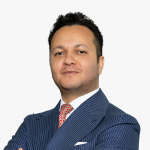Roughly 30 seconds into conversation with Boris Feldman it becomes apparent why the charismatic litigator is regarded as a local legend in California’s legal community. Spitting out colourful quotes with the confidence that comes from having acted for pretty much every Bay Area brand name going, the bow-tied Feldman has nonetheless chosen an odd time in his lengthy career to change firm, let alone quit a local bellwether like Wilson Sonsini for the uncertain embrace of London’s oldest elite law firm.
But then Feldman’s move alongside four other senior lawyers to set up a Silicon Valley arm for Freshfields Bruckhaus Deringer speaks to two key issues of huge strategic importance for the storied London firm. The first point is that for the first time in its 43-year history in the US, Freshfields is attracting the kind of star power widely accepted as a prerequisite of success stateside. The second point is directly related: the acquisition of said talent has dramatically changed perceptions of the London firm in the US in just eight months after years of mixed opportunities and bad PR.
‘When you write an article in 2025 about Freshfields in Silicon Valley, there’s two metrics I’d like to judge us by,’ notes Feldman. ‘Firstly, the quality of talent [we’re hiring] and second, that we’ve helped to make Freshfields an American brand as well as a global one.’
To an extent that would have seemed unthinkable a year ago, such sentiments are no longer dismissed as hyperbole by peers, even if Freshfields has a long way to go on this journey. But consider the names signing up to help light the way.
As one of the leading securities litigators on the West Coast, Feldman has acted for many of the top names among California’s fêted technology giants, including Google, Facebook, Netflix, Salesforce, LinkedIn, Snap and Hewlett-Packard.
On the transactional side, Feldman is supported by a figure of comparable stature, Davis Polk & Wardwell veteran Sarah Solum, who oversaw the Wall Street firm’s launch and transformation into a serious presence in the West Coast securities market.
Solum, who is running the new, seven-partner operation, is touted as a ‘superstar’ by Freshfields partners, with one noting: ‘You can’t get better than that. She seems to have mentored everyone in Silicon Valley.’
The team is fleshed out by John Fisher, an M&A partner from Sidley Austin, Latham & Watkins executive comp partner Maj Vaseghi and Wilson Sonsini litigation associate Doru Gavril, who joined as a partner. The seven-partner outpost includes Freshfields partners Pamela Marcogliese (capital markets) and Alan Ryan (antitrust), transferring respectively from New York and Brussels.
Freshfields gets additional props for having pulled off such an audacious move remotely, given that serious discussions with the group did not begin until just before coronavirus-driven lockdowns. ‘I’ve done this whole thing from my closet,’ jokes Solum, decrying the limits of home-office space.
Aside from the undoubted quality of the two senior individuals in the group, the practice mix is astute. The team includes Fisher as an up-and-coming deal hand in the key technology and life sciences sectors, and in Gavril provides a protégé to Feldman, now in his 60s, to build in succession.
Shipping in a trusted operator like Ryan on antitrust is likewise a no-brainer at a time when America’s technology giants are spending half their time squaring up to European agencies on business-critical issues of competition, tax and data security. Marcogliese, likewise, has an admirable CV having in 2019 advised on the high-profile float of Pinterest and Google’s 2015 corporate reorganisation.
Aside from a well-regarded move in itself, Freshfields’ Silicon Valley adventure builds upon on its recruitment in October of a four-partner M&A and securities team in New York from Cleary Gottlieb Steen & Hamilton, which brought in Marcogliese.
While Freshfields’ previous moves in New York’s transactional space had generated at best mixed reviews, the Cleary team led by deal heavyweight Ethan Klingsberg has garnered grudging but undiluted admiration, not least for the circa-$10m package it took to bring him in.
Aside from shipping in the kind of deal lawyers that had until now proven beyond the grasp of the London elite, the Cleary team brought additional benefits given its impeccable West Coast connections. Aside from major work with clients like Google, Pinterest and Hewlett Packard Enterprise, Klingsberg is hugely prominent in California’s legal community, having hosted a well-attended annual M&A conference in San Francisco with the Berkeley Center for Law and Business. Certainly, Feldman and Solum make it clear that Klingsberg’s presence was material to their taking Freshfields’ call, going as far as to call the former Cleary partner ‘the most important M&A lawyer in the West Coast’.
And eye-catching team moves in Silicon Valley and New York have been followed by other notable recruitment, with Freshfields shipping in ten Cleary associates since October. The firm also in July hired well-regarded securities litigator, Willkie Farr & Gallagher partner Mary Eaton, reinforcing a key strategic discipline in the US market.
All in, even the most sceptical of peers are impressed. ‘That’s the most interesting thing that’s happened in the market, in terms of what the Magic Circle firms are doing, for quite a while,’ observes one managing partner of a major US firm of Freshfields’ West Coast move. ‘That’s really playing at the top of the market.’
‘CC ringing in our ears’
Before this piece turns into a love letter to Freshfields’ US operation, it must be remembered that Freshfields’ US strategy has had more false starts than a vintage Jag. So persuading US peers and potential recruits that it is serious this time is no done deal, however impressive its recent efforts.
On top of which, the Magic Circle’s collective chequered history in New York looks like a triumph of execution compared to London leaders’ efforts in California so far. Freshfields had previously flirted with launching locally – including considering taking a productive M&A team led by Richard Climan from the imploding Dewey & LeBoeuf.
The Climan team ultimately went to Weil, Gotshal & Manges before becoming a highly-profitable fixture at Hogan Lovells’ West Coast practice.
Previously, Freshfields’ nerve usually faltered at persuading its conservative partners, particularly in Germany, why it should make such investments. One partner concedes the move had previously been seen as an ‘add-on’ or ‘distraction’ before the growth of California’s corporate champions led to the conclusion that this was fundamental to Freshfields’ global aspirations.
Another Freshfields partner concedes that ‘CC is ringing in our ears’ in wariness of avoiding the fate of Clifford Chance’s disastrous foray into California nearly two decades ago. Having hired a large team from Brobeck, Phleger & Harrison in 2002, CC shut its local operation several years later amid much acrimony.
However, there are many reasons to believe that the London giant can proceed far more quickly in California now than in the war of attrition it inevitably faces on Wall Street, even with expensive soldiers to bolster its campaign.
For one, the days in which the Bay Area was a graveyard for out-of-towners are long gone. Sure, Cooley and Wilson Sonsini remain potent forces in the local technology community, as do smaller outfits like Fenwick & West and boutique Gunderson Dettmer Stough Villeneuve Franklin & Hachigian.
But even if emerging company work remains largely the preserve of local leaders, for mature-stage capital markets, M&A, disputes and private equity the last 20 years have seen huge inroads from East Coast rivals. Likewise, office head Solum has a proven track record of selling old-money institutions to California’s youthful executive class. Recalling her experiences launching her Wall Street firm’s local operation, Solum makes light of the challenge of pitching a 300-year-old London outfit to the locals: ‘I am used to it, they used to call us, “David Polk”.’
Among the firms to have carved strong local positions are Davis Polk for securities, Skadden, Arps, Slate, Meagher & Flom and Hogan Lovells for general M&A, with Simpson Thacher & Bartlett and Kirkland & Ellis established for private equity matters.
This is the client base of core concern to Freshfields with the London firm obviously looking to put an added global spin on its proposition to marquee clients. ‘All my clients, all their problems now have global dimensions,’ reflects Feldman. ‘It would be great for them to have a unified global team.’
Moreover, as Freshfields corporate partner Alan Mason, acknowledged as the architect behind the Silicon Valley move, notes, the economic case for the launch is compelling. ‘There’s been a huge amount of analysis focused on growth. This is where we see the growth of the legal market.’
Given the dramatic rise of California’s technology giants to global dominance over the last 20 years, who can argue with such sentiments? As the US’s most populous state, California’s economy is often touted as being the fifth largest in the world if it was an independent country (edging out the UK on most metrics).
Moreover, the current Covid-19-induced crisis has if anything strengthened the relative hand of the West Coast’s global technology champions, given the increasing demand for their services as remote working booms amid the pandemic. With stock market valuations of marquee West Coast companies shrugging off the global economic crisis, technology clients have been raising capital like it’s going out of style.
The bullish mood among local lawyers, particularly in capital-drenched North California, speaks also to the opportunities in a market that is still far from London/New York levels of saturation for commercial lawyers.
Huge progress can be made with far smaller teams than demanded in Wall Street or the City – Skadden became a major force locally fielding around 70 lawyers in California, one of the largest from an East Coast player. And despite the rocketing costs of Bay Area real estate, investing is still cheaper than cracking Manhattan; against the $10m package for Klingsberg – roughly double the top of Freshfields’ mainstream equity ladder – the highest package offered for a transferring partner was under $7m, according to one insider.
Aside from the words, Clifford and Chance, the only mystery around Freshfields’ move is not why but why the firm and its peers waited so long given the rich strategic pickings on offer.
As one London rainmaker remarks, ‘If we get this right this could be the inflexion point we have all been hoping for in the US.’
When stars align
Such an inflexion point won’t quite be enough to finish the job in the US for Freshfields. Bringing in the Cleary team will break a few eggs as some of the previously shipped in deal partners are expected to move on. An earlier sign of this occurred with the departure of US M&A head Mitchell Presser for Morrison & Foerster in April. This kind of turnover is largely priced in already. But with credible US positions in antitrust, investigations, securities litigation and corporate, Freshfields is rapidly putting together the pieces to position it as a strategic boardroom adviser to major corporates stateside. Obvious next moves would be to bulk out its US private equity practice and expand out the mid-level associate ranks – with under 250 lawyers stateside, Freshfields is still going to need considerable growth to fulfill its ambitions.
There will be much attention on its leadership elections this year to see if Freshfields has the stomach to sustain such audacious and expensive investment, particularly in the face of a conservative German partnership. As one former partner notes of its US hires, ‘Europe should be trimmed to pay for this but that’s hard to do in an election year.’
The Silicon Valley move suggests Freshfields’ progressive wing is winning the argument on future direction but the replacement for senior partner Edward Braham will settle the point. While there has been much talk of a team forming around German partner Helmut Bergmann, possibly including partners David Sonter and Jennifer Bethlehem, other potential figures to watch include Mason and Asia head Georgia Dawson.
By all accounts, Freshfields’ deal team has remained on solid form through the crisis, securing a number-two ranking in Mergermarket’s global tables for the first half of 2020. Recent US deals have included acting on the merger of Stagwell Media and MDC Partners, while Klingsberg has just advised Hewlett Packard Enterprise on its pending $925m acquisition of Silver Peak. If the stars are not only joining but aligning now for Freshfields in the US, they never will.
As Legal Business argued recently, the current crisis will likely be the best opportunity the London elite will get to reassert themselves on the global stage before they are effectively pushed into second tier status by a group of US rivals. And seizing this moment to revive their faltering US strategies – which have always been far more self-imposed failures than the inevitability of market dynamics – would be the most powerful expression of that rebirth.
Having worked through repeated torturous setbacks to be in a position to persuade star names of the likes of Solum, Feldman and Klingsberg to sign up, this is surely Freshfields’ moment. For the sake of City law as a global force and tradable brand, let’s hope they don’t squander it.
For more analysis, see our Deal View column on Freshfields in Wall Street












